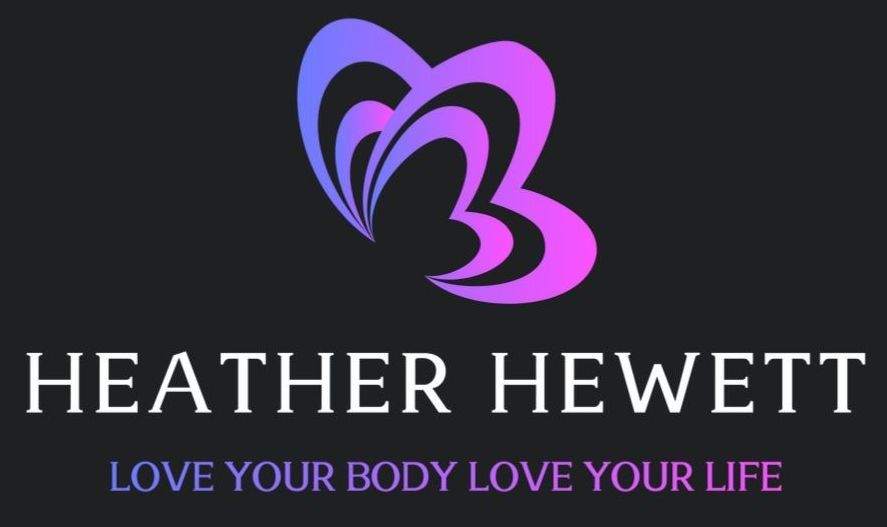What Is Nutritional Counseling and How Can It Improve Your Health?
Nutritional counseling is a personalized, evidence-based process where a trained professional helps you understand your unique dietary needs and create a sustainable eating plan to achieve your health goals. It moves beyond generic diet tips, offering expert guidance to manage chronic health conditions, optimize energy levels, and cultivate a healthy, positive relationship with food. The primary benefit of nutritional counseling is receiving a tailored roadmap that fits your specific lifestyle, food preferences, and medical history, empowering you to navigate the confusing world of nutrition with confidence.
This guide is designed to be your definitive resource for understanding what nutritional counseling is, how its powerful collaborative process works, and whether it’s the right investment for your long-term health. We live in an era of information overload. Every day, we are bombarded with fleeting diet fads, conflicting advice from social media influencers, and "miracle" solutions that promise more than they deliver. This constant noise not only creates confusion but also fosters anxiety and a distrust of our own body's signals.
This article will cut through that noise with clarity and authority. We will explore the profound benefits of a personalized nutrition strategy, clarify the crucial and often misunderstood difference between a nutritionist vs. dietitian, and provide a transparent, step-by-step look at what you can expect from this transformative journey. This comprehensive guide is perfect for a wide range of individuals, including:
- Anyone recently diagnosed with a chronic condition like type 2 diabetes, high cholesterol, hypertension, or Polycystic Ovary Syndrome (PCOS).
- Individuals exhausted by the endless cycle of yo-yo dieting and seeking a sustainable, shame-free approach to weight management.
- Athletes, from weekend warriors to competitive performers, look to enhance performance, speed up recovery, and gain a competitive edge.
- People experiencing persistent digestive distress, food sensitivities, chronic fatigue, or brain fog.
- Women navigating specific life stages, such as planning for pregnancy, postpartum recovery, or managing symptoms of perimenopause and menopause.
- Anyone who simply wants to repair their relationship with food, eat with more joy and less guilt, and build a foundation of vibrant health for the future.
Let’s dive deep and explore how this personalized process can become your greatest asset in achieving lifelong wellness.
Why Is Understanding Your Nutrition So Important?
In the modern world, having access to accurate, personalized nutrition information is not a luxury; it's a necessity. The allure of the quick fix is powerful, but fad diets from extreme carb-cutting to juice cleanses almost universally fail in the long run. They fail because they are built on a foundation of deprivation and ignore the single most important variable in the equation: you.
Your body is a complex ecosystem influenced by your unique genetics, metabolism, gut microbiome, hormone levels, stress response, and daily schedule. A diet that works wonders for one person could be ineffective or even detrimental for another. Nutritional counseling replaces this flawed, one-size-fits-all model with a strategy that is scientifically sound, deeply personalized, and respectfully collaborative.
The World Health Organization (WHO) emphasizes that healthy diets are fundamental throughout a person's life, helping to prevent malnutrition and a wide range of noncommunicable diseases (NCDs) and conditions. Counseling is the critical service that translates this global health principle into a practical, actionable, and sustainable plan for your real life.
Beyond Weight Loss: The Holistic Impact of Nutrition
While many people initially seek out a nutrition professional for weight management, they often discover that the benefits ripple out to touch every corner of their lives. The food you consume provides the essential information and raw materials that determine how you feel, think, and function every single day.
- Mental Clarity and Mood Regulation: The gut-brain axis is a direct, biochemical communication highway between your digestive system and your brain. A staggering 95% of your body's serotonin, a key neurotransmitter for mood stability, is produced in the gut. A diet rich in fiber, polyphenols, and fermented foods supports a diverse microbiome, which in turn helps regulate mood, sharpen focus, and reduce the risk of anxiety and depression.
- Sustained Energy and Vitality: If you find yourself depending on caffeine and sugar to overcome afternoon slumps, your diet is likely the culprit. A skilled counselor teaches you how to balance your meals with protein, healthy fats, and high-fiber carbohydrates. This stabilizes your blood sugar, providing a steady stream of energy and eliminating the dramatic peaks and crashes that leave you feeling exhausted.
- A Resilient Immune System: Did you know that approximately 70% of your immune system is housed in your gut? A healthy gut lining and a diverse microbiome are your first line of defense against pathogens. Key nutrients like Vitamin C, Vitamin D, Zinc, and Selenium are crucial for producing and activating immune cells. Nutritional counseling ensures your diet is rich in these protective compounds, making you more resilient to common illnesses.
- Restorative Sleep Quality: The connection between diet and sleep is profound. Certain nutrients are precursors to sleep-regulating hormones. For example, the amino acid tryptophan is needed to produce melatonin. Minerals like magnesium help relax the nervous system. A counselor can help you structure your eating habits—like avoiding heavy meals or caffeine too close to bedtime to promote deeper, more restorative sleep.
Nutritional counseling moves beyond generic diets to offer a personalized plan that improves not just weight, but also mental health, daily energy, immune resilience, and sleep quality.
How Does Nutrition Counseling Work? A Step-by-Step Journey
It’s essential to think of nutritional counseling not as a rigid prescription, but as a dynamic and supportive partnership. It's an empowering educational process designed to equip you with the knowledge and confidence to make informed decisions about your health for the rest of your life. While every practitioner brings their own style, the journey generally follows a structured, client-centered framework.
The Initial Consultation: Laying the Foundation
Your first meeting is the cornerstone of the entire process, typically lasting between 60 and 90 minutes. This session is a comprehensive deep dive into your world, requiring your honesty and openness to be truly effective. It is a judgment-free zone. You can expect to cover:
- Detailed Health and Medical History: This goes beyond a simple checklist. It includes any current or past medical diagnoses, a full review of medications and supplements (as these can interact with nutrients), and a look at your family's health history to identify potential genetic predispositions. If available, your counselor will review recent blood work to get objective data on things like cholesterol levels, blood sugar (A1C), iron status, and vitamin deficiencies.
- In-Depth Lifestyle Assessment: This involves a discussion about your typical daily routine. What time do you wake up? What does your work schedule look like? How do you manage stress? What are your exercise habits—and do you enjoy them? Who does the grocery shopping and cooking in your household? These details are crucial for building a plan that is realistic.
- Dietary Exploration: You'll likely be asked to recall what you ate over the last 24 hours or to share a few days from a food journal. The goal isn't to critique your choices, but to understand your current patterns, food preferences, portion sizes, meal timing, and cultural or religious food practices.
- Unpacking Your Relationship with Food: This is often the most insightful part of the conversation. The counselor will gently explore topics like your history with dieting, any "good" vs. "bad" food rules you might have, emotional or stress-related eating patterns, and any feelings of guilt or anxiety that surface around meals.
- Clarifying Your Goals and Your "Why": Together, you'll move beyond "I want to lose weight" to uncover deeper motivation. Do you want to have the energy to keep up with your grandchildren? Do you want to manage your PCOS to improve your chances of conceiving? Do you want to feel confident and strong in your body? A powerful "why" is the ultimate fuel for lasting change.
Co-Creating Your Personalized Nutrition Strategy
Following the initial assessment, your counselor will synthesize all that information and work with you to build your personalized roadmap. This is a collaborative effort. A good professional will never hand you a generic, restrictive meal plan and send you out the door. Instead, the strategy is a multi-layered educational experience that may include:
- Foundational Nutrition Education: You’ll learn the "why" behind the recommendations. This isn't about memorizing facts, but about understanding concepts, such as how soluble fiber helps lower cholesterol, how protein promotes satiety and muscle repair, or how different types of fats impact your heart health.
- A Personalized Meal Structure: This is a flexible template, not a rigid diet. It will offer guidance on what a balanced plate looks like for your unique needs, including appropriate portion sizes and the ideal mix of macronutrients (protein, fat, carbs) for your goals.
- Building Real-World Skills: The focus is on practical application. You might learn how to read and interpret nutrition labels like a pro, how to build a healthy grocery list, how to navigate restaurant menus and social events without stress, and simple meal prep techniques for a busy week. You might receive sample recipes, grocery lists, or guides to healthy cooking oils.
- Incorporating Technology: Many counselors utilize tools like food logging apps (e.g., MyFitnessPal, Cronometer) not as a tool for obsessive tracking, but as a way to gather data and increase your awareness of your habits. They can then review this data with you to identify patterns and opportunities.
- Mindful and Behavioral Strategies: You’ll develop powerful tools to reconnect with your body's innate wisdom. This includes learning to recognize your physical hunger and fullness cues, developing strategies to manage non-hunger triggers for eating (like stress, boredom, or social pressure), and practicing mindful eating to increase satisfaction from your meals.
Follow-Up Sessions: Accountability, Refinement, and Support
Sustainable change is a process of building new habits, which takes time and practice. Follow-up sessions, which are typically shorter (30-45 minutes) and scheduled weekly or bi-weekly at first, are where the plan is brought to life. These sessions are essential for:
- Celebrating Wins and Building Momentum: Acknowledging your successes, no matter how small, is crucial for building self-efficacy and motivation.
- Troubleshooting Barriers without Judgment: Did a high-stress work project derail your healthy eating? Did a vacation throw you off track? These are not failures; they are learning opportunities. Your counselor will help you analyze what happened and create a plan for navigating similar situations in the future.
- Progressive Fine-Tuning: As you make progress, your body and needs will change. Your plan must evolve with you. Your counselor will continually adjust the recommendations to prevent plateaus and keep you moving toward your ultimate goals.
- Unwavering Accountability and Support: Knowing you have a dedicated, knowledgeable partner to check in with can be an incredibly powerful motivator. Your counselor is your guide, your cheerleader, and your source of evidence-based information when you feel lost or overwhelmed.
The nutrition counseling journey is a structured partnership involving a comprehensive initial assessment, the collaborative creation of a practical and educational plan, and consistent follow-up sessions for accountability and refinement.
Nutritionist vs. Dietitian: A Critical Distinction
To get safe, effective, and reliable advice, you must understand the credentials of the professional you choose. The titles "dietitian" and "nutritionist" are frequently used interchangeably by the public, but they represent vastly different levels of education, legal standing, and scope of practice. Making an informed choice is essential for your health and safety.
Registered Dietitian (RD) or Registered Dietitian Nutritionist (RDN)
The titles "Registered Dietitian" (RD) and "Registered Dietitian Nutritionist" (RDN) are legally protected and interchangeable. It is illegal for someone to use these titles without meeting a strict set of professional and academic requirements. They are the gold-standard experts in the field.
- Education and Training: An RD/RDN must have, at a minimum, a bachelor's degree in nutrition and dietetics from a university program accredited by the Accreditation Council for Education in Nutrition and Dietetics (ACEND). They must also complete a highly competitive and rigorous 1,200-hour supervised clinical internship. This internship provides hands-on experience in various settings, including hospitals, outpatient clinics, and community health centers.
- Credentials: After completing their degree and internship, they must pass a national registration examination administered by the Commission on Dietetic Registration (CDR).
- Scope of Practice: RDs are qualified to provide Medical Nutrition Therapy (MNT), which involves assessing, diagnosing, and treating medical conditions through nutrition. This includes complex diseases like diabetes, kidney failure, cancer, heart disease, and severe gastrointestinal disorders.
- Continuing Education: To maintain their registration, RDs are required to complete ongoing continuing professional education credits, ensuring their knowledge remains current with the latest scientific research.
Nutritionist
The term "nutritionist" is much broader and is often unregulated. This means that, in many states or countries, individuals can legally call themselves a nutritionist with widely varying or even nonexistent levels of training.
- Education and Training: The educational background of a nutritionist can range from a Ph.D. in nutrition science to a short, unaccredited online certificate program. Because the term isn't protected, there is no single standard.
- Credentials: While some nutritionists hold legitimate and rigorous credentials, such as the Certified Nutrition Specialist (CNS) designation which requires a master's degree and a supervised internship, others may have no verifiable credentials at all. It is up to the consumer to investigate their qualifications thoroughly.
- Scope of Practice: A qualified nutritionist can be an excellent resource for providing general nutrition guidance and education to healthy individuals seeking to improve their wellness, energy levels, or eating habits. However, they are generally not legally permitted to provide MNT or to diagnose or treat medical conditions.
How to Choose: The decision is simple when based on your needs. If you have a diagnosed medical condition, you require the clinical expertise of a Registered Dietitian (RD/RDN). If you are generally healthy and are looking for guidance on general wellness or optimizing your diet, a well-qualified and certified nutritionist (like a CNS) can be a suitable choice, but you must carefully vet their specific educational background and certifications.
A Registered Dietitian (RD/RDN) has legally protected, standardized medical training to diagnose and treat diseases. The "nutritionist" title is unregulated, requiring you to carefully verify the individual's specific education and certifications before proceeding.
Is Nutritional Counseling Worth It? The Core Benefits
Committing your time and financial resources to nutritional counseling is one of the most powerful investments you can make in your lifelong health. The return on this investment manifests not just in physical changes, but in an improved quality of life, greater self-confidence, and potentially significant long-term financial savings.
- Personalized and Truly Sustainable Plans: The primary reason that over 95% of conventional diets fail is their inherent rigidity and one-size-fits-all approach. Nutritional counseling shatters this model. It provides a flexible, adaptable framework that is built around your food preferences, your schedule, and your culture. This personalization is the secret to creating habits that last a lifetime, not just for 30 days.
- Proactive Disease Management and Prevention: For individuals managing a chronic illness, MNT from a dietitian is a cornerstone of effective care. Proper nutrition can dramatically improve clinical outcomes—lowering blood sugar, reducing blood pressure, improving cholesterol profiles, and decreasing inflammation. This can reduce the severity of symptoms and, in some cases, lower the need for costly medications.
- Liberation from Diet Culture and Food Guilt: So many people are trapped in a miserable cycle of restricting foods they love, inevitably "giving in," and then being flooded with guilt and shame. This is the toxic cycle of diet culture. Counseling helps you dismantle it. You learn to honor your body, embrace intuitive eating principles, and enjoy all foods as part of a balanced approach. This mental and emotional freedom is often described by clients as the most valuable benefit of all.
- Optimization of Physical and Cognitive Performance: You don't need to be sick to see profound benefits. For busy professionals, dedicated students, and active individuals, optimizing nutrition is like unlocking a new level of performance. A fine-tuned diet can sharpen your focus, enhance your memory, boost your physical stamina, and dramatically shorten your recovery time after exercise. It’s the ultimate tool for moving from simply "not sick" to truly thriving.
- Expert Guidance and Unbiased Accountability: In a world of conflicting information, a qualified professional serves as your trusted source of truth. They provide unbiased, science-backed answers to your questions. They are your personal guide, your educator, and your coach, holding you accountable to the goals you set for yourself in a compassionate, supportive, and non-judgmental environment. This partnership is often the missing ingredient for people who have tried and failed to make changes on their own.
- Long-Term Financial Savings: While there is an upfront cost, nutritional counseling can be seen as a form of preventive healthcare. By managing or preventing chronic diseases, you can significantly reduce your future medical expenses, including costs for prescription drugs, specialist visits, and hospital stays. Investing in your health now pays dividends for decades to come.
Nutritional counseling is a high-value investment for its ability to deliver sustainable, personalized health plans that can prevent or manage disease, optimize human performance, and fundamentally liberate you from the harms of diet culture.
Common Myths and Misconceptions About Nutrition
One of the primary roles of a nutrition counselor is to act as a myth-buster, helping clients replace harmful misconceptions with factual, empowering knowledge. Let's debunk some of the most pervasive myths.
Myth #1: "Carbs are Bad and Make You Gain Weight"
This is perhaps the most damaging myth in modern nutrition. The truth is that carbohydrates are your body's preferred source of energy. The problem isn't carbs themselves, but the type and quantity consumed. A skilled counselor will teach you the difference between:
- Simple/Refined Carbs: Found in things like white bread, sugary drinks, and pastries. These are digested quickly, can spike blood sugar, and offer little nutritional value.
- Complex Carbs: Found in whole grains, legumes, vegetables, and fruits. These are packed with fiber, which slows digestion, keeps you full and satisfied, stabilizes blood sugar, and feeds the beneficial bacteria in your gut. Eliminating all carbs is unnecessary and can lead to fatigue, brain fog, and nutrient deficiencies.
Myth #2: "You Must Cut Out All Your Favorite Foods to Be Healthy"
This "all-or-nothing" mindset is a recipe for failure. Telling yourself you can never have pizza or ice cream again only increases your cravings and sets you up for a binge when your willpower inevitably runs out. A good counselor will help you incorporate the foods you love in a mindful and moderate way. They might teach you about the 80/20 principle (eating nourishing foods 80% of the time and enjoying less-nutritious foods 20% of the time) or help you find healthier, satisfying versions of your favorite treats. If they are knowledgeable about Eating Disorders addictive behaviors around food, they can help you customize a plan suitable for your needs.
Myth #3: "A Calorie Is Just a Calorie"
While calories are a unit of energy, the source of those calories matters immensely. Your body's hormonal response, the impact on your hunger levels, and the nutritional value received are vastly different depending on the food. For example, 200 calories from almonds provides fiber, protein, healthy fats, Vitamin E, and magnesium. It will keep you full and satisfied. In contrast, 200 calories from a soda provides only sugar and chemicals. It will spike your blood sugar, promote inflammation, and leave you hungry again very quickly. A counselor helps you focus on nutrient density, not just calorie counting.
Myth #4: "You Need to Do a Detox or Cleanse Regularly"
The commercial "detox" industry is built on clever marketing, not science. Your body already has a sophisticated and highly effective detoxification system: your liver and kidneys. These organs work 24/7 to filter your blood, neutralize harmful substances, and excrete them from your body. The best way to support this natural system isn't with expensive juices or restrictive cleanses, but by eating a diet rich in antioxidants, fiber, and water, and by limiting your intake of alcohol and highly processed foods.
A key role of nutritional counseling is to debunk common myths about carbs, calories, and detoxes, replacing fear-based rules with flexible, science-backed knowledge.
Frequently Asked Questions
1. What happens during the first nutritional counseling session? Your first session is a comprehensive 60-90 minute assessment. Expect an in-depth, compassionate conversation about your health history, medications, lifestyle, stress levels, sleep patterns, typical eating habits, and ultimate wellness goals. The counselor's aim is to understand you as a whole person to create a truly personalized and effective plan.
2. Will my counselor make me go vegan or follow a specific diet? Absolutely not. A professional counselor's job is to work within your preferences, culture, and ethics. They will never force a specific dietary style on you. Instead, they will help you optimize your health within the framework of the dietary pattern you choose to follow, whether that's omnivore, vegetarian, or anything in between.
3. What if I have a very busy schedule and don't have time to cook? This is one of the most common challenges clients face, and a good counselor is an expert in finding solutions. They can provide you with strategies for quick and healthy meals (e.g., 15-minute recipes), tips for healthy takeout, lists of nutritious convenience foods, and simple meal prep techniques that save you time during the week.
4. Can I do nutritional counseling online or virtually? Yes. The vast majority of dietitians and nutritionists now offer telehealth or virtual sessions via secure video platforms. This has made expert nutritional care more convenient and accessible than ever before, allowing you to connect with the right professional regardless of your physical location.
5. How is nutritional counseling different from a program like Weight Watchers? Commercial weight loss programs like WW can be helpful for some, but they are generally group-based, use a proprietary points system, and are not personalized to your individual medical needs. Nutritional counseling is a one-on-one, clinical service. A Registered Dietitian can tailor a plan to your specific health conditions, review your lab work, and provide a much deeper level of personalized, scientific guidance than a commercial program can.
6. How much does nutritional counseling cost and will insurance cover it? Costs can vary significantly based on your location, the professional's credentials, and session length. The great news is that many health insurance plans will cover sessions with a Registered Dietitian, especially if it's deemed medically necessary for a condition like diabetes, obesity, or kidney disease. Your first step should always be to call your insurance provider and ask about your coverage for "Medical Nutrition Therapy" (using that specific term).
About the Author
Heather M. Hewett is a seasoned holistic health professional with over 22 years of experience in naturopathy, clinical nutrition, and health coaching. Her approach integrates mind-body wellness, focusing on gut health, emotional resilience, and somatic trauma therapy. Drawing from her personal journey of overcoming food addiction and significant weight loss, Heather empowers clients to transform their relationships with food and themselves. She offers personalized coaching and group programs like "Love Your Body, Love Your Life!" to guide individuals toward sustainable health and emotional well-being.





